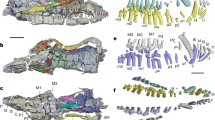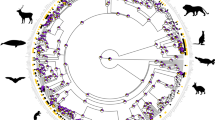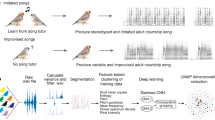Abstract
THE phenomenon of parasitic castration has been reported in many of the animal phyla including the Mollusca1–4. Investigations into the biology and ecology of scallops in Port Phillip Bay, Victoria, have revealed an interesting example of parasitic castration in Pecten alba.
This is a preview of subscription content, access via your institution
Access options
Subscribe to this journal
Receive 51 print issues and online access
$199.00 per year
only $3.90 per issue
Buy this article
- Purchase on Springer Link
- Instant access to full article PDF
Prices may be subject to local taxes which are calculated during checkout
Similar content being viewed by others
References
Von Brand, T., Chemical Physiology of Endoparasitic Animals (Academic Press, New York, 1952).
Caullery, M., Parasitism and Symbiosis (Sidgwick and Jackson, Ltd., London, 1952).
Charniaux-Cotton, Helen, The Physiology of Crustacea, 1, 411 (Academic Press, New York, 1960).
Nicol, J. A. C., The Biology of Marine Animals (Pitman Press, London, 1960).
Mason, J., J. Mar. Biol. Assoc. U.K., 37, 653 (1958).
Harrison, A. J., thesis, Univ. Tasmania (1961).
Author information
Authors and Affiliations
Rights and permissions
About this article
Cite this article
SANDERS, M. Parasitic Castration of the Scallop Pecten alba (Tate) by a Bucephalid Trematode. Nature 212, 307–308 (1966). https://doi.org/10.1038/212307b0
Issue Date:
DOI: https://doi.org/10.1038/212307b0
Comments
By submitting a comment you agree to abide by our Terms and Community Guidelines. If you find something abusive or that does not comply with our terms or guidelines please flag it as inappropriate.



